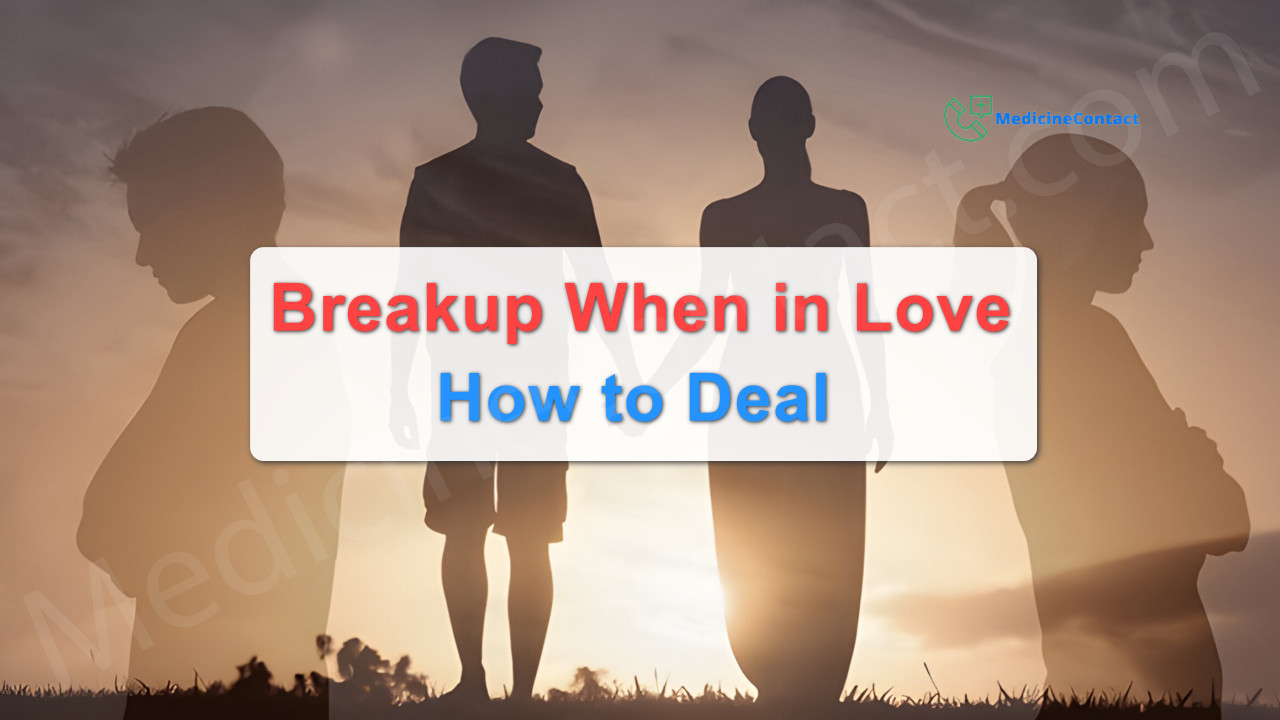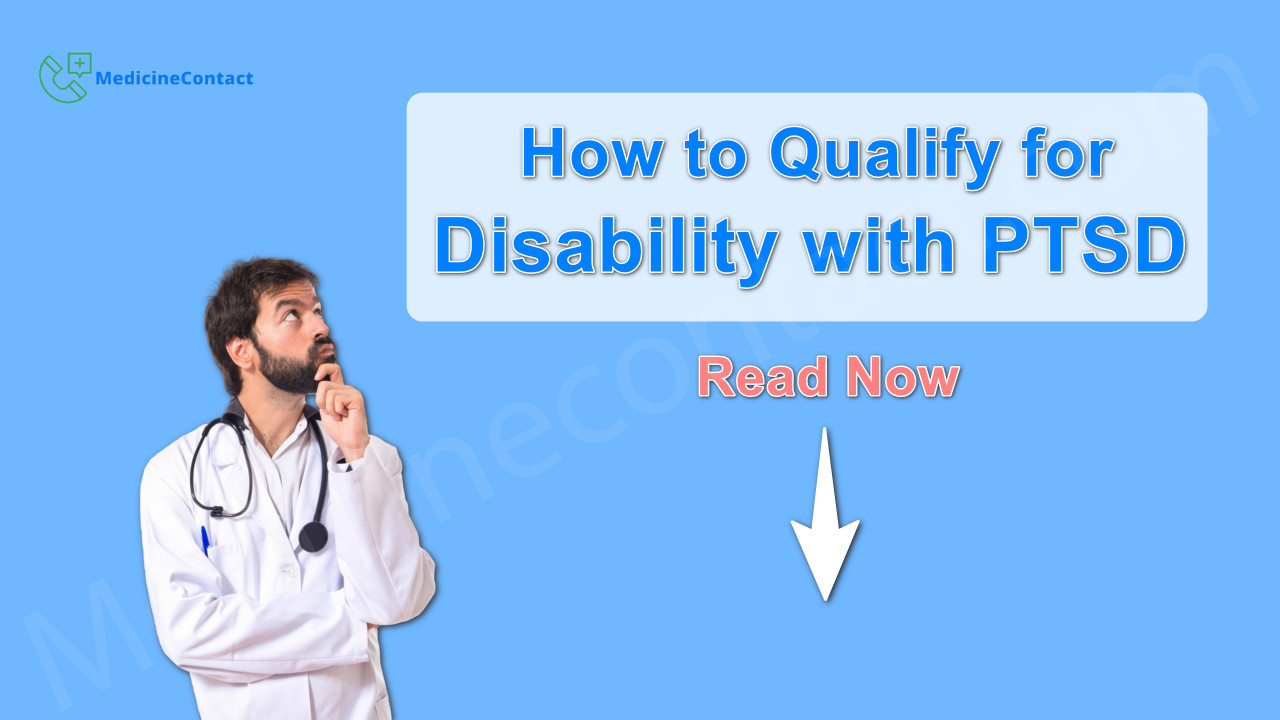
Introduction
Breaking up with someone you love can feel like an emotional whirlwind, leaving you caught between profound affection and the stark reality that the relationship isn't working. You might find yourself replaying memories, questioning your decision, and feeling an intense sense of loss.
Understanding when and how to end a relationship—even when feelings remain strong—is crucial for both personal well-being and future growth. Many struggle with the dilemma of how to break up with someone you love or how do you break up with someone you still love. Recognizing the signs that it's time to part ways can help in making a clear decision.
This article will provide:
- Practical advice for managing emotions during a breakup.
- Coping strategies to help navigate the emotional turmoil.
- Insights into personal growth after ending a relationship.
By the end, you'll have a comprehensive overview of when to break up with someone you love and how to do it effectively, ensuring both parties can move forward with respect and compassion.
Understanding the Emotional Landscape of a Breakup
The Nature of Love and Attachment in Relationships
Love and attachment are fundamental aspects of human relationships. They bind individuals together, fostering a sense of deep connection and intimacy. Yet, these very bonds can complicate the process when it's time to part ways. Understanding how love and attachment influence our emotional health is crucial for navigating breakups.
Common Emotional Responses to Breakups
Experiencing a breakup often triggers a rollercoaster of emotions. Some of the most common responses include:
- Grief: Similar to losing a loved one, breakups can evoke intense feelings of sorrow.
- Confusion: Uncertainty about the future and questioning past decisions can cloud one's mind.
- Anger and Resentment: Feelings of betrayal or injustice may arise, especially if the breakup was unexpected.
- Relief: For some, ending a relationship can also bring a sense of relief, particularly if the relationship was strained.
Recognizing these emotions as natural is an important step toward healing.
Recognizing Personal Attachment Styles
Attachment styles play a significant role in how individuals cope with breakups. Understanding your attachment style can provide insights into your emotional responses and coping mechanisms:
- Secure Attachment: Individuals with this style generally handle breakups more healthily, maintaining emotional balance.
- Anxious Attachment: Those with an anxious attachment style might struggle with feelings of abandonment and seek constant reassurance.
- Avoidant Attachment: People with avoidant tendencies may suppress their emotions, creating barriers to genuine healing.
- Disorganized Attachment: This style often combines elements of both anxious and avoidant attachments, leading to unpredictable emotional reactions.
Identifying your attachment style helps in developing personalized strategies to manage your emotions effectively during a breakup.
Understanding these emotional landscapes not only aids in processing the breakup but also paves the way for personal growth and healthier future relationships.
When to Break Up: Signs That It's Time to Let Go
Identifying the right time to end a relationship can be challenging, especially when emotions are deeply involved. However, there are several indicators that can help you determine when to break up.
One-Sided Sacrifices
In a healthy relationship, both partners should contribute equally. If you find yourself consistently making sacrifices without reciprocation, this imbalance can lead to resentment and dissatisfaction. For instance, if you're always the one adjusting your schedule or compromising your needs while your partner remains inflexible, it might be a sign of a deeper issue.
Lack of Trust and Frequent Conflicts
Trust is the foundation of any strong relationship. A persistent lack of trust can stem from various sources such as dishonesty, infidelity, or unmet expectations. Frequent arguments and conflicts often indicate underlying problems that remain unresolved. These constant battles can erode emotional intimacy and connection over time.
Example: Imagine constantly fighting over small issues like spending habits or social media interactions. These conflicts may signify larger incompatibilities.
Growing Apart or Misaligned Values
People evolve over time, and so do their values and goals. If you and your partner find yourselves on different paths with conflicting priorities, it might be challenging to maintain harmony in the relationship. Growing apart doesn't always mean falling out of love; sometimes, it simply means that your life directions no longer align.
Misaligned Values
Differences in core beliefs or future plans, such as career ambitions or family planning.
Personal Growth
As individuals grow, they may develop new interests or perspectives that no longer match their partner's.
Recognizing these signs early can help in making an informed decision about whether to continue or end the relationship. Understanding relationship issues like these allows for a more compassionate approach to breaking up.
Note: It’s important to address specific concerns directly with your partner before making any decisions. This includes seemingly minor issues like disagreements over personal choices (e.g., "is it okay to break up with someone over piercings?").
These considerations provide clarity on signs of a breakup, helping you navigate through one of life's most difficult decisions.
Preparing for the Breakup Conversation: Planning Ahead for an Effective Discussion
Tips for Delivering the Breakup Message Honestly Yet Compassionately
Breaking up with someone you love is never easy, but effective communication can help soften the blow. Here are some tips to deliver the breakup message with honesty and compassion:
- Choose the Right Setting: Opt for a neutral, private location where you both feel safe. Avoid personal spaces like home to minimize emotional distress.
- Be Clear and Honest: Explain your reasons clearly without being hurtful. Use "I" statements to express your feelings and avoid blaming your partner.
- Show Empathy: Acknowledge the pain this conversation may cause. Express appreciation for the good times shared and reassure them that this decision is difficult for you as well.
- Keep It Brief: Lengthy explanations can lead to unnecessary arguments or confusion. Keep your message concise and focused on the main reasons.
Anticipating Your Partner's Reaction and Preparing for Various Responses
Understanding that your partner's reaction might vary can help you prepare mentally and emotionally. Here are some potential reactions and ways to handle them:
- Sadness and Tears: Offer a comforting presence, but maintain boundaries. Let them know it's okay to feel upset.
- Anger or Hostility: Stay calm and avoid engaging in arguments. Reiterate your decision firmly yet kindly.
- Shock or Denial: Be patient if they need time to process the information. Offer clarity if they have questions, but avoid prolonged debates.
- Acceptance: While less common, some partners may accept the breakup calmly. Respect their response and offer support if needed.
Planning ahead for these possibilities ensures that you remain composed during the conversation, helping both parties navigate this challenging transition with grace.
Creating distance after the breakup conversation will be crucial for emotional healing, which we will explore in the next section on setting boundaries post-breakup.
Creating Distance Post-Breakup: Setting Boundaries for Emotional Healing
Breaking up is a tough experience, and healing often requires making an effort to create both physical and emotional distance. This separation allows individuals to start rebuilding their lives independently, free from the immediate influence of their former partner.
Why Physical and Emotional Distance Matters:
- Physical Separation: Avoiding places you frequented together can reduce constant reminders of the relationship, making it easier to move forward.
- Emotional Detachment: Temporarily limiting or ceasing contact helps in diminishing emotional dependency, which is crucial for personal healing.
Establishing Boundaries for Future Interactions:
Creating clear boundaries post-breakup is essential for emotional recovery. Here are some strategies:
- Communication Limits: Decide on the best approach to communication—whether it's reducing texts and calls or going completely no-contact for a period.
- Social Media Boundaries: Consider unfollowing or muting your ex on social platforms to avoid daily updates that could hinder your healing.
- Mutual Friends: Discuss with mutual friends about maintaining neutrality and avoiding discussions about each other's lives.
Implementing these boundaries might feel challenging initially but plays a significant role in facilitating a smoother transition towards emotional well-being.
Coping After the Breakup: Strategies for Moving On While Still in Love
Dealing with a breakup when you're still in love can be emotionally challenging. It's important to give yourself time to grieve and work through these feelings. Grief is a natural response to loss, and acknowledging it can help you heal emotionally. You might find it helpful to write down your thoughts, express yourself through creative activities, or simply allow yourself to cry as ways to process this grief.
Taking care of yourself is another key strategy for rebuilding your emotional strength. Here are some self-care practices you can try:
- Exercise: Physical activity can release endorphins, which act as natural mood lifters.
- Healthy Eating: Nourishing your body with balanced meals can improve overall well-being.
- Mindfulness and Meditation: These techniques help center your thoughts and reduce anxiety.
- Social Activities: Spending time with supportive friends and family members can provide comfort and distraction.
"Self-care means giving yourself permission to pause." - Cecilia Tran
By focusing on these coping strategies, you can begin to rebuild your emotional resilience. This deliberate emphasis on self-care not only helps you move forward but also contributes to personal growth after the breakup.
Seeking Support from Others: The Value of Connection During Difficult Times
Talking to trusted individuals can be incredibly valuable during the emotional turmoil of a breakup. Friends and family often provide a comforting presence, offering perspective and empathy that can be crucial for healing. Sharing your feelings with those who care about you creates a sense of connection and helps alleviate feelings of isolation.
When to Consider Professional Help
- Persistent Sadness: If feelings of sadness or hopelessness persist beyond what seems normal, it might be time to seek professional help. This could be a sign of complicated grief, where the process of mourning is prolonged and difficult.
- Difficulty Functioning: Struggling with daily activities or responsibilities is another indicator that professional support is needed.
- Unresolved Emotions: Therapy can assist in processing complex emotions, providing tools to cope effectively.
Engaging with a therapist or counselor offers a structured environment to explore your feelings, facilitating personal growth and resilience. Understanding when to break up with someone you love and how to do it involves recognizing the importance of seeking support from others, ensuring you are not navigating this challenging time alone.
It's also important to remember that grief isn't limited to the loss of a relationship. The emotional pain experienced during such times can sometimes resemble bereavement, where the feelings are intense and overwhelming. In such cases, recognizing the signs of complicated grief can be helpful in seeking timely assistance.
For those struggling with breakup survival strategies, reaching out for support, whether from friends, family, or professionals, can make a significant difference in navigating through the emotional landscape.
Moving Forward While Still in Love: Embracing Personal Growth After a Breakup
Breaking up with someone you love is undeniably challenging, but it also paves the way for profound personal growth after a breakup. Recognizing this period as an opportunity to focus on self-improvement can transform heartache into a catalyst for positive change.
Embracing Personal Growth Opportunities
1. Self-Reflection
Take time to reflect on your relationship and identify areas for personal improvement. This introspection can reveal insights about your needs, boundaries, and future relationship goals.
2. New Hobbies and Interests
Engage in activities that you may have neglected during the relationship. Whether it's picking up a new hobby, traveling, or pursuing further education, these endeavors can help rebuild your identity outside of the relationship.
3. Stronger Social Connections
Reconnect with friends and family who may have taken a backseat during your relationship. Strengthening these bonds provides emotional support and enriches your social life.
Finding Closure While Acknowledging Lingering Feelings of Love
1. Journaling
Writing down your thoughts and emotions can be therapeutic. It allows you to process lingering feelings of love while seeking closure on the past.
2. Mindfulness Practices
Techniques such as meditation or yoga can help ground you in the present moment, making it easier to accept the end of the relationship while still cherishing shared memories.
3. Professional Guidance
Therapy or counseling can provide strategies for managing unresolved feelings and finding closure. Professional support offers a safe space to explore complex emotions. For those grappling with the aftermath of a failed marriage, this guide on healing might offer some useful insights.
Cutting Ties with the Past
As you embark on this journey of personal growth, it’s essential to also consider cutting energy cords. This practice can aid in releasing emotional ties that no longer serve you, allowing for healthier emotional boundaries moving forward.
Navigating the path of personal growth after breaking up with someone you love requires patience and compassion towards yourself. Each step taken towards self-improvement not only heals but also prepares you for healthier future relationships. If you're struggling to find your way through this process, seeking professional help could be beneficial in providing you with tailored strategies and support.
Compassionate Honesty in Relationships: Ethical Considerations in Ending Things Amicably
Ending a relationship with compassion is crucial, especially when deep feelings are involved. Being considerate and gentle can alleviate some of the emotional pain for both partners.
The Role of Compassion in Ending Relationships Amicably
Compassion means recognizing the humanity in your partner and valuing their emotional well-being. This involves:
- Honesty Without Cruelty: Clearly express why the relationship must end without resorting to hurtful or dismissive language.
- Empathy: Understand and acknowledge your partner's feelings, allowing them space to process the breakup.
How Caring for Someone Can Coexist with the Decision to Part Ways
It's possible to care deeply for someone while also realizing that staying together isn't beneficial. Balancing these feelings requires:
- Acknowledging Love and Respect: Affirm that your decision stems from a place of mutual respect, not a lack of love.
- Setting Boundaries with Kindness: Establishing necessary boundaries post-breakup should be done with sensitivity to both parties' needs for healing.
Ethical considerations in breakups involve prioritizing emotional integrity and maintaining a sense of dignity for everyone involved. This approach can facilitate smoother transitions and pave the way for healthier future relationships.
Conclusion: Embracing Healing and Moving On with Life After a Heartbreak
Understanding your emotions during a breakup is crucial for overcoming heartbreak. Recognizing the complexity of love and attachment allows you to navigate the turbulent feelings that come with this challenging period.
As you embrace healing, you'll build emotional resilience and turn pain into an opportunity for personal growth. Seeking support from friends, family, or professionals can provide valuable perspectives and comfort. Sharing experiences with others who have faced similar situations creates a sense of solidarity and encourages mutual healing.
Call-to-action: Share your experiences or seek advice if needed. Engaging in open conversations about your journey can foster emotional resilience and help others who are struggling with similar challenges.
By embracing these strategies, you can find closure while acknowledging lingering feelings of love. The journey to healing may be long, but it is both necessary and empowering. For more insights on when to break up with someone you love and how to do it, explore our comprehensive guide on Emotional Health.
FAQs (Frequently Asked Questions)
When should I consider breaking up with someone I love?
It's important to recognize signs such as one-sided sacrifices, lack of trust, frequent conflicts, or growing apart. If you find that your values are misaligned or if the relationship is causing more pain than joy, it may be time to let go.
How can I prepare for a breakup conversation?
Planning ahead is crucial. Think about how to deliver the breakup message honestly yet compassionately. Anticipate your partner's reactions and prepare for various responses to ensure the conversation is respectful and clear.
What coping strategies can I use after a breakup?
Allow yourself time to grieve and process your emotions. Engage in self-care practices like exercise, hobbies, or spending time with friends to rebuild your emotional strength and facilitate healing.
How can I create distance after a breakup?
Establishing physical and emotional boundaries is essential for healing. Limit future interactions and give yourself space to process the breakup without constant reminders of the relationship.
Is it okay to seek support from others after a breakup?
Absolutely! Sharing your feelings with trusted friends or family members can provide comfort. If you're struggling significantly, consider professional help to navigate your emotions during this difficult time.
How can I embrace personal growth after ending a relationship?
Use this time as an opportunity for personal growth by reflecting on what you've learned from the relationship. Acknowledge any lingering feelings of love while focusing on finding closure and moving forward positively.
Disclaimer: This article is for informational purposes only and does not constitute medical advice. Always consult with a healthcare professional before starting any new treatment regimen.




